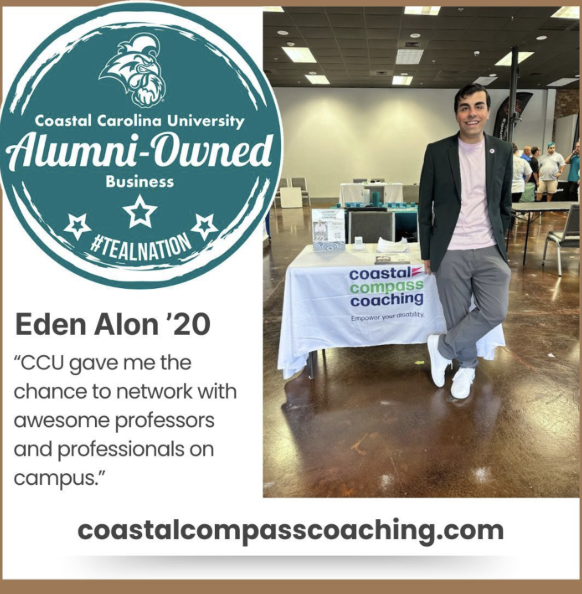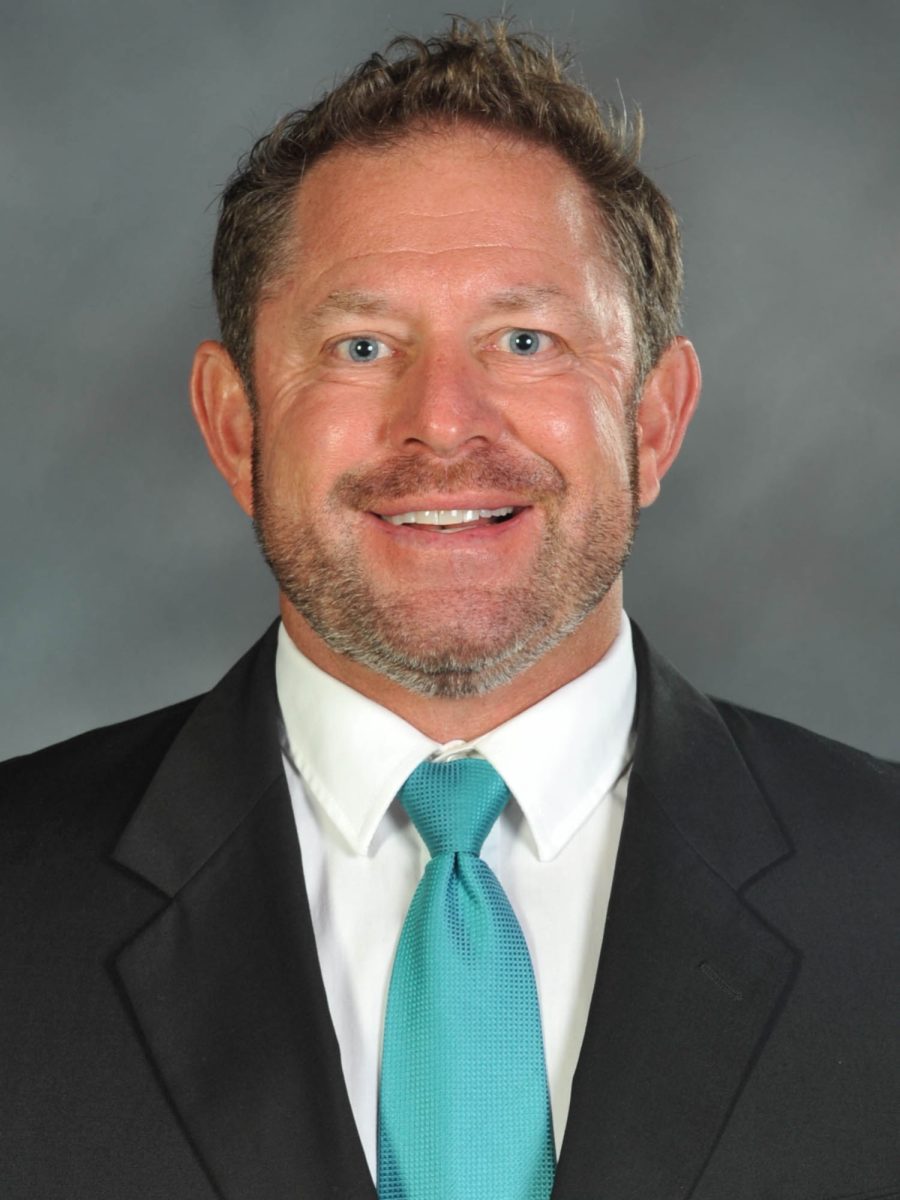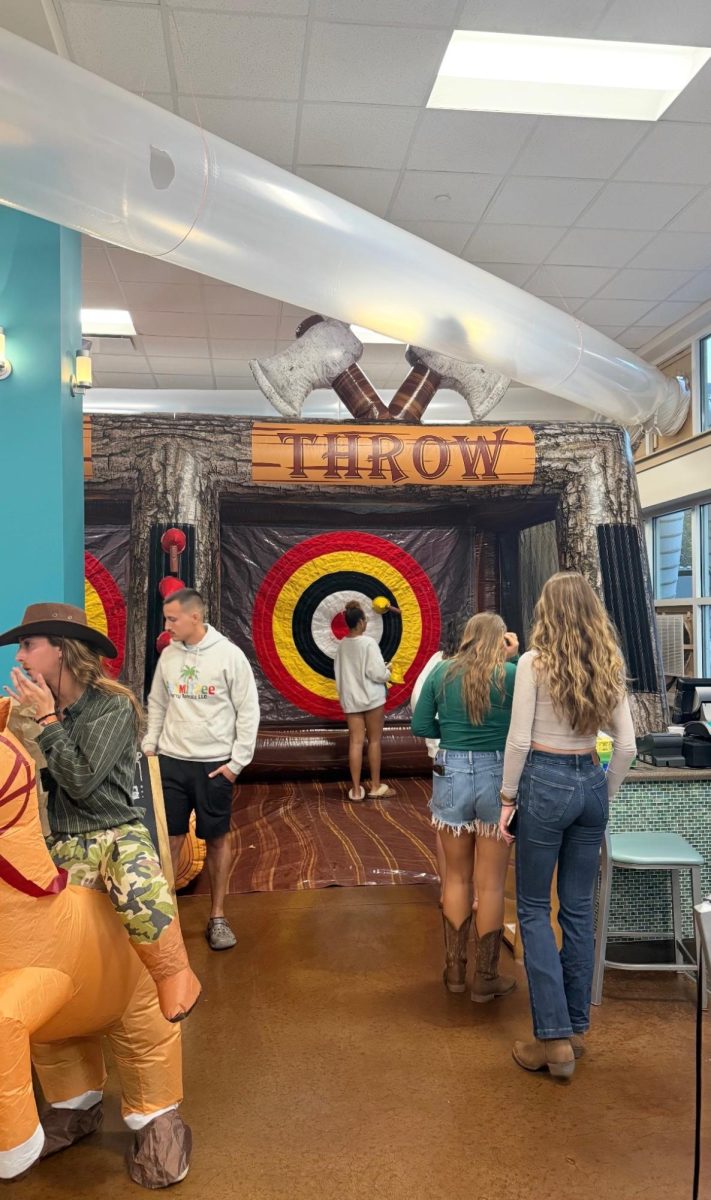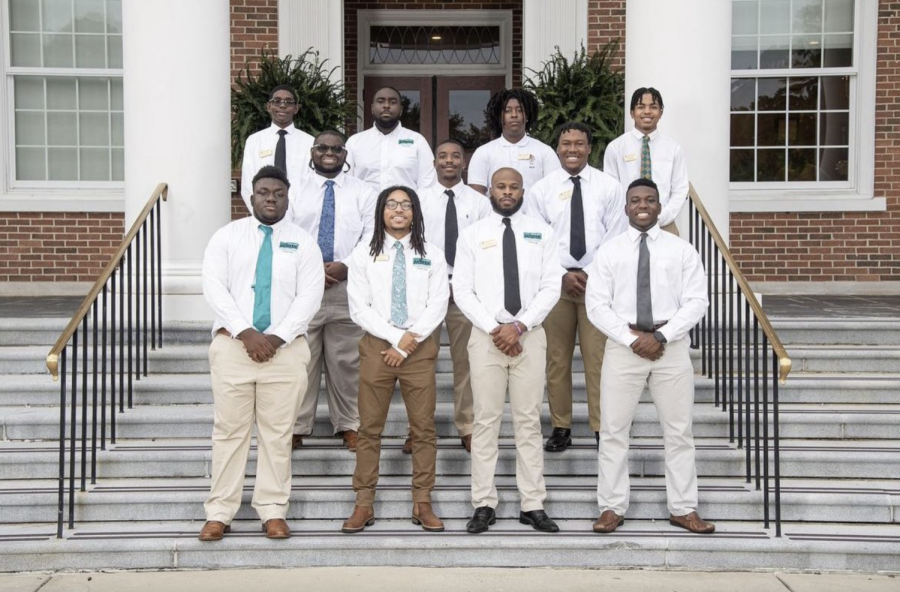Call them MiSTER: Teaching organization aims to put African American men in classrooms
Photo provided by Ajzahn Brown
Follow Call Me MiSTER on Instagram @coastal_callmemister.
African American men make up about 2% of public-school educators in the U.S., according to the Stanford Graduate School of Education.
The Call Me MiSTER program at Coastal Carolina University provides African American men the opportunity to pursue teaching careers after graduation. “MiSTER” is an acronym that stands for “mentors instructing students toward effective role models.”
MiSTER Senior Vice President Ajzahn Brown said representation can go a long way.
“I feel like a lot of African American boys in classrooms and in schools do not have a positive male role model in their life,” Brown said.
According to Associate Dean Jamia Richmond, Ph.D., of the Spadoni college and member of the group’s advisory board, Call Me MiSTER is an elite organization of young men nationwide. Clemson University first started the program to get more black men in the classroom. This is the group’s sole mission.
“They are role models not just to young African American boys but girls as well,” Richmond said.
Richmond said if a student who is black has an encounter with a black man in their early years, they are more likely to graduate. Associate Professor Tiffany Hollis, Ph.D, said the MiSTER program came to Coastal’s campus in 2017 and took inspiration from groups such as the Teaching Fellows Program.
Brown said Call Me MiSTER mentorship sets the organization from others because they act as brothers for one another.
“The brotherhood is real,” said Demondre Williams, MiSTER senior vice president.
Members of the program who go into early childhood, elementary, or middle level education receive tuition assistance, according to Coastal’s website. They also have access to their advisory board members, including Richmond, Hollis, Professor Emeritus Dianna Mark, Ph.D; and Call Me MiSTER Director Jerome Christia, Ph.D.
“We do a lot in terms of making sure that they not only stand out, but that they stand up in terms of issues on campus as it pertains to other minoritized populations,” Hollis said.
The executive team members of Call Me MiSTER said the advisory board has guided them to a path of success. MiSTER Treasurer Ahmad Singletary, said this is his first year as a member in the program. Singletary, who is a junior, said Hollis helped him when he was struggling with his classes.
![]()
“You never know who you’ll connect with,” Singletary said. “They can help you in the long run to guide you not only down the right path, but to put you in seats you never thought you’d be able to sit in.”
Former member of the advisory board Assistant Professor Adriane Sheffield, Ph.D, passed away last June. Hollis said her loss “took a toll” on the MiSTER members’ mental health. In Sheffield’s honor, the group dedicated a bench in front of the Prince Building with her name on it.
Brown said he felt his opinions, feelings and voice were heard by his advisers. The MiSTERs said they want to bring a sense of mentorship into the program.
Mentorship is mainly about setting a standard for males in professional settings, according to Brown. He said he wants to set an example for other members of how to juggle multiple situations at once.
MiSTER President and CCU junior Daquis McKinney said networking is the greatest benefit of membership. Together, the group members develop connections to other cohorts at different schools, including other principals and superintendents.
McKinney said as mentors, the MiSTER members guide Conway High School students “down the right path.” He said a challenge he faced during mentoring was when he interacted with students who do not come from the same background as he did.
“A lot of people there one don’t have somebody to talk to,” McKinney said. “And if there are people to talk to, they don’t know how to talk to that person. They don’t trust that person.”
The MiSTER leaders stressed the importance of networking. Williams said the main reason he joined the program is because he experienced opportunities he would not be able to experience if he was not a member.
“I think MiSTER just opened a whole other world for me,” Williams said.
Williams said he did an internship over the summer at the University of South Carolina Upstate where he worked with elementary school children. He said the experience was out of his comfort zone, but he was grateful for it.
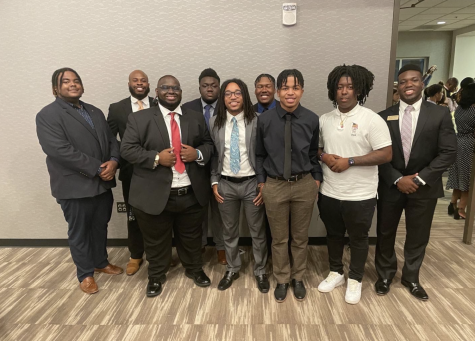
Hollis said MiSTER Avery Shorts went to Egypt this past summer to work in schools. The advisory board walked him through the process to get a passport and even provided him with toiletries for his trip.
Similarly, Brown won the Distinguished Service Award over the summer during his internship at Clemson. He said the program prepared him well and now he has the opportunity to visit Greece next year.
He said he joined Call Me MiSTER to feel accepted, included and supported throughout his undergraduate career.
“Sometimes it can be difficult being an African American male in a predominantly white institution, and you’re trying to matriculate through a professional program in education,” Brown said.
Every Friday when the organization meets, the group members perform leadership building activities and talk about their weeks. They begin their meetings with their vision statement– their mission for being there.
Their recent meeting on Nov. 4 featured guest speaker Joshua Moore, the director of intercultural and inclusion student services. They chose words from a list and reflected on their views, values and purpose. This included a roundtable discussion about why they decided to go into education.
Hollis said in order to retain students, they must feel like they matter.
“I think it’s important for fellow teacher educators to truly understand how to meet the needs of this population of students,” Hollis said. “So not just the MiSTERs, but a lot of the minoritized students in general in terms of sexual orientation, race and ethnicity, class and social status.”
As the program’s leaders look toward for the future, Richmond said they intend to create a general mentoring group for all men who are studying education.
